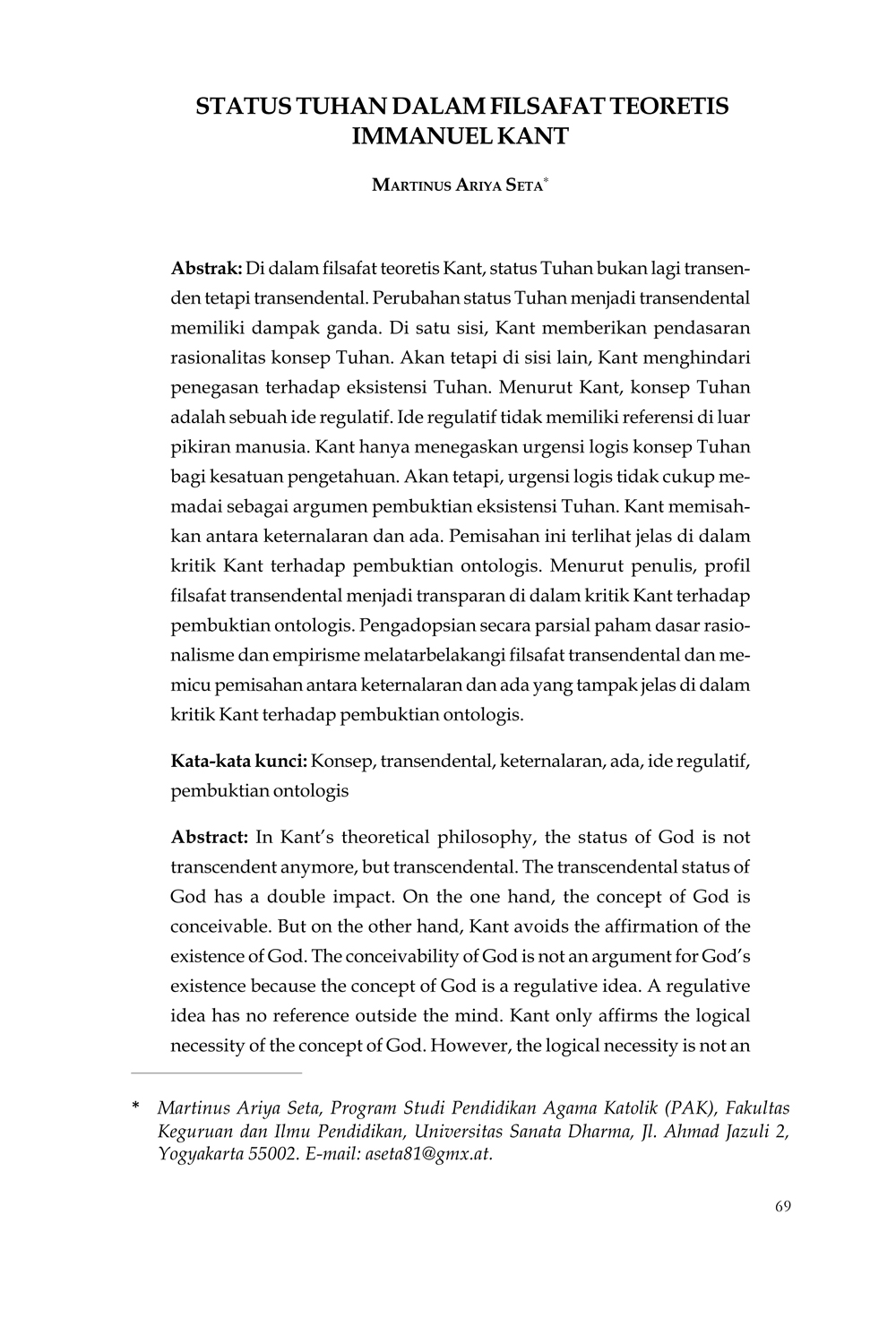Status Tuhan dalam Filsafat Teoretis Immanuel Kant
Abstract
Abstrak: Di dalam filsafat teoretis Kant, status Tuhan bukan lagi transenden tetapi transendental. Perubahan status Tuhan menjadi transendental memiliki dampak ganda. Di satu sisi, Kant memberikan pendasaran rasionalitas konsep Tuhan. Akan tetapi di sisi lain, Kant menghindari penegasan terhadap eksistensi Tuhan. Menurut Kant, konsep Tuhan adalah sebuah ide regulatif. Ide regulatif tidak memiliki referensi di luar pikiran manusia. Kant hanya menegaskan urgensi logis konsep Tuhan bagi kesatuan pengetahuan. Akan tetapi, urgensi logis tidak cukup memadai sebagai argumen pembuktian eksistensi Tuhan. Kant memisahkan antara keternalaran dan ada. Pemisahan ini terlihat jelas di dalam kritik Kant terhadap pembuktian ontologis. Menurut penulis, profil filsafat transendental menjadi transparan di dalam kritik Kant terhadap pembuktian ontologis. Pengadopsian secara parsial paham dasar rasionalisme dan empirisme melatarbelakangi filsafat transendental dan memicu pemisahan antara keternalaran dan ada yang tampak jelas di dalam kritik Kant terhadap pembuktian ontologis.
Kata-kata Kunci: Konsep, transendental, keternalaran, ada, ide regulatif, pembuktian ontologis.
Abstract: In Kants theoretical philosophy, the status of God is not transcendent anymore, but transcendental. The transcendental status of God has a double impact. On the one hand, the concept of God is conceivable. But on the other hand, Kant avoids the affirmation of the existence of God. The conceivability of God is not an argument for Gods existence because the concept of God is a regulative idea. A regulative idea has no reference outside the mind. Kant only affirms the logical necessity of the concept of God. However, the logical necessity is not an adequate argument for the existence of God. Kant separates between conceivability and being. The separation is obvious in his critique toward the ontological argument. In my opinion, the profile of the transcendental philosophy is transparent in Kants critique toward the ontological argument. The partial adoption of empirical and rational principles works behind the transcendental philosophy and leads to the separation between conceivability and being, which is visible in the Kants critique toward the ontological argument.
Keywords: Concept, transcendental, conceivability, being, regulative idea, ontological argument.

DISKURSUS applies the Creative Commons license (CC BY). We allow readers to read, download, copy, distribute, print, search, or link to the full texts of its articles and allow readers to use them for any other lawful purpose. Full information about CC BY can be found here: https://creativecommons.org/licenses/by/4.0/












